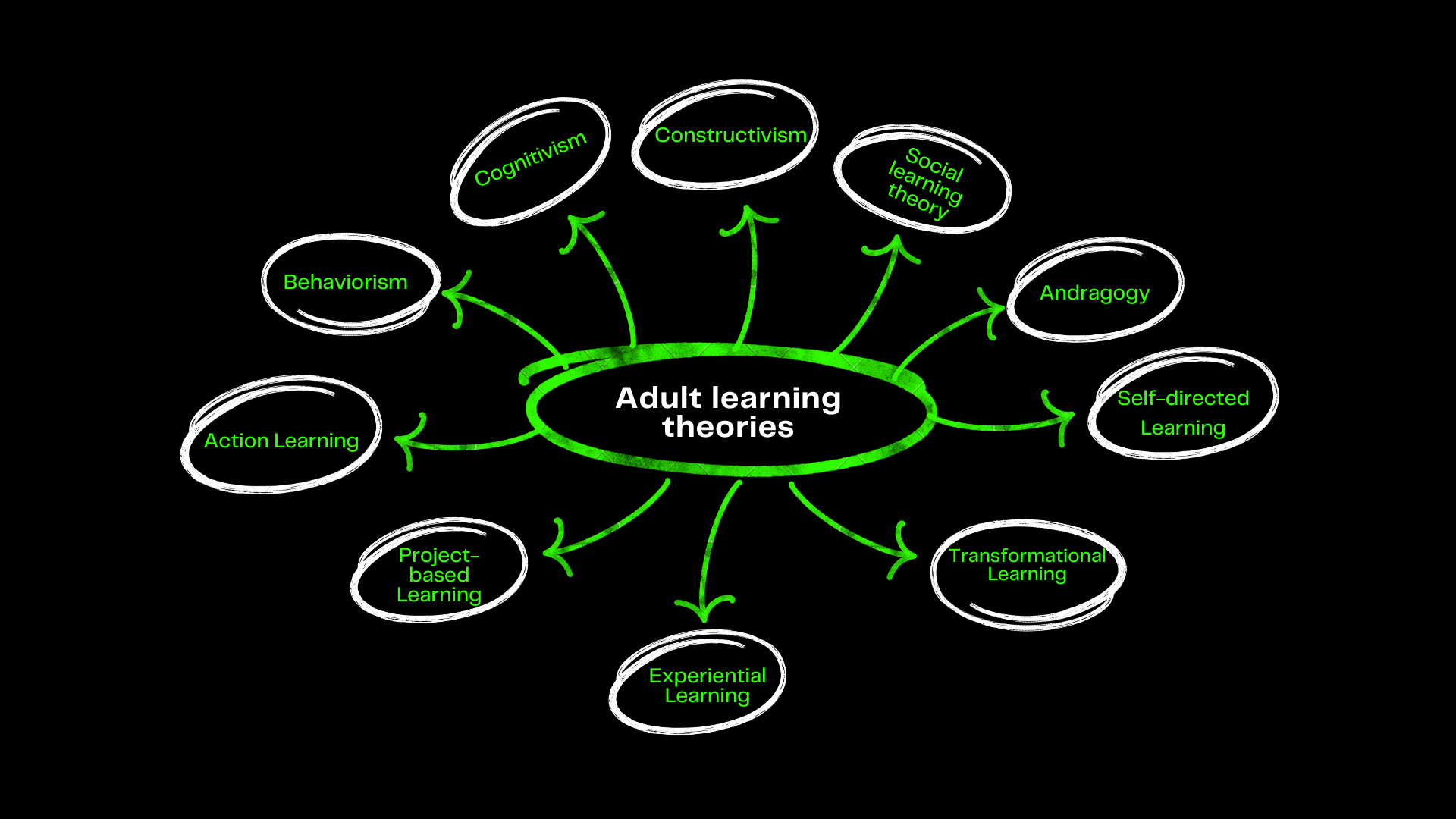Adult learning theories
Adult learning theories provide a foundation to define and connect a learning need to its most appropriate solution. There is NO one adult learning theory. There are several prevalent theories that all explain how adults learn: each theory has unique applications and techniques associated with it. Different theories and techniques will resonate better with students based on their primary learning style.
Adult learning theories are based on the premise that adults learn differently than children. The way that adults and children learn differ in many important ways:
- Adults tend to be more self-motivated, as they understand the value of education and often have a solid goal in mind when they begin studying. Children need higher levels of engagement, as they are less naturally motivated in learning situations.
- Adults can tap into their existing knowledge base to understand new concepts, while children are often approaching a new subject from an entirely blank slate.
- Adults are much more able to self-direct to solve problems and learn new concepts, while children have a higher need for direction.
Adult learning theories highlight the fact that training programs must be developed with adults in mind to be effective.
Adult learning theories:
- Andragogy
- Self-directed Learning
- Transformative Learning
- Experiential Learning
- Project-based Learning
- Action Learning
- Behaviorism
- Cognitivism
- Constructivism
- Social learning theory


